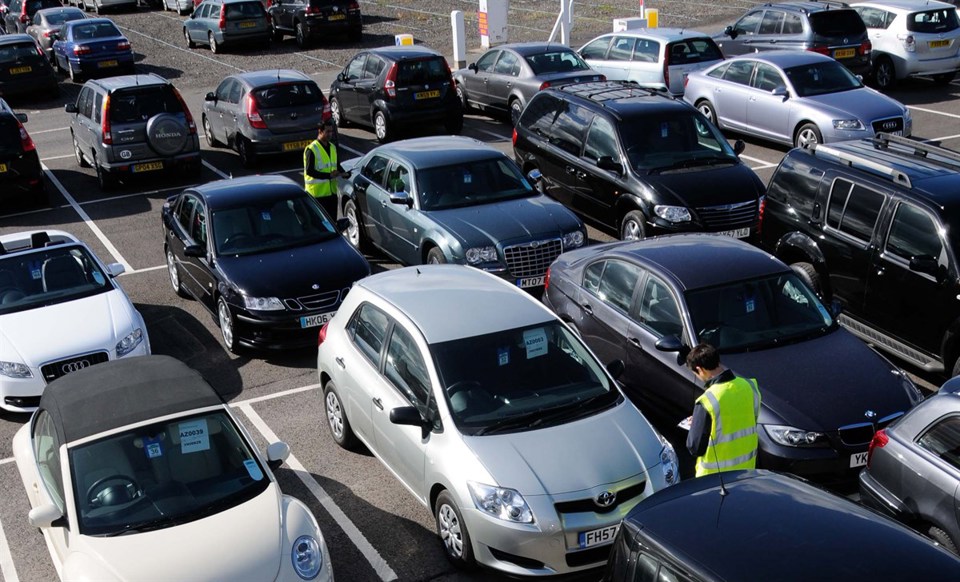Used car dealers operating at a national level need to reflect wide regional differences across the UK used car market, according to BCA’s latest report.
One of the biggest challenges for dealers this year will also be to balance the mix of the fast growing number of younger used cars and older units in the face of fierce competition from ‘eye-watering’ new car finance deals.
The Closer View: A National and Regional Market Review is a BCA report by Professor Peter Cooke, Emeritus Professor in Automotive Management, University of Buckingham, which addresses the range of issues affecting the country’s new and used car sectors and examines how consumers might change their views on what cars to own and how they buy them.
Despite the recovering economy and rise in new car sales, certain parts of the UK have seen their average weekly earnings fall below the national average.
As might be expected, London tops the earnings’ list at £692 per week, followed by the South East (£638) and the East of England at £589.
Apart from London, the South East and the East, all other regions' average earnings fall short of the national average mark.
Professor Cooke argues that while historically, used car retailers have operated within a relatively tight geographical area, the growing number of national retailers means there are increasing opportunities, pitfalls and local market niches.
Regional variations
According to BCA's research, ‘price range’ far outstrips all other considerations on the way motorists first set about looking for a used car. Seventy-seven per cent of West Midlands’ car buyers were driven mostly by price when they began their search, as were seven out of 10 motorists in the North, East Midlands and the South West.
‘Brand’ is the second most important factor for Northern (47%) and North Western (46%) car owners, while ‘model’ takes second spot for two out of five of motorists living in Yorkshire/Humberside and Wales.
When considering what car to buy next, ‘personal experience of make/model’ has the most powerful influence in all but two of the country’s regions. It is particularly important to nearly two out of five used car owners in Yorkshire and a third of motorists living in the South West, East Anglia, East and West Midlands and the North.
The ‘views of friends and family' are valued most by car owners in the South West (32%) and the East Midlands (30%), but have much less sway in East Anglia where just a fifth of motorists take heed of their close associates’ opinions.
Taking a ‘test drive’ is in the frame for 28% of Londoners and South Western used car buyers, while the Internet has significantly less influence across all regions during this early stage of the buying process.
‘Price’ is the overriding issue in nine of the 11 UK regions when making the crunch decision on what used car to buy – particularly so in East Anglia, London, the South West and the East Midlands. ‘Price’ is less influential in the higher-earning South East (24%), where 26% of motorists pay more attention to ‘make and model of vehicle’.
'Make and model’ is also the chief concern for more than half (55%) of Northerners and two out of five used car buyers living in London and the South West. ‘Low mileage, on the other hand, is high on the shopping list for East Anglian (47%) and West Midlands’ (41%) car owners.
Influences on choice of dealer
When deciding which dealer to buy from, having the ‘right car at the right price’ tops the list for half of used car buyers in Wales, the West Midlands and Yorkshire/Humberside – but much less so in Scotland and the North West at 30%
and 27% respectively (Figure 5.3 overleaf).
A ‘good deal’ is a top priority for West Midlands’ used car owners (45%) and two out of five motorists in London, East Midlands and Scotland. The ‘ability to trade in a car’ is a must for 45% of South Western car owners and 46% of Scots, but much less of an issue in the South East and the North West.
‘Reliable and trustworthy dealers’ hold more sway in Yorkshire/Humberside (31%), and with a quarter of Scottish, East Anglian and South Western motorists – in contrast to East Midlands’ car buyers who place much less emphasis on this aspect (10%).
Professor Cooke said: “The implications for such wide differentials can be considerable when one looks at
potential disposable income available for 'big ticket' purchases. Of course, the higher income levels shown in the chart are mitigated, to a degree, when one considers the higher cost of living in these higher-earning areas.
“Motorists need to be more certain than ever of the right decision before replacing their cars.”
Spencer Lock, BCA managing director, said: “Recovery from economic recession means the UK’s car markets are evolving, as motorists change the way they choose, source and pay for vehicles, whether new or used.
“There are also subtle changes in the marketplace itself and, as important, a broad range of regional issues that will have a bearing on the automotive markets as the economy improves.”















Login to comment
Comments
No comments have been made yet.